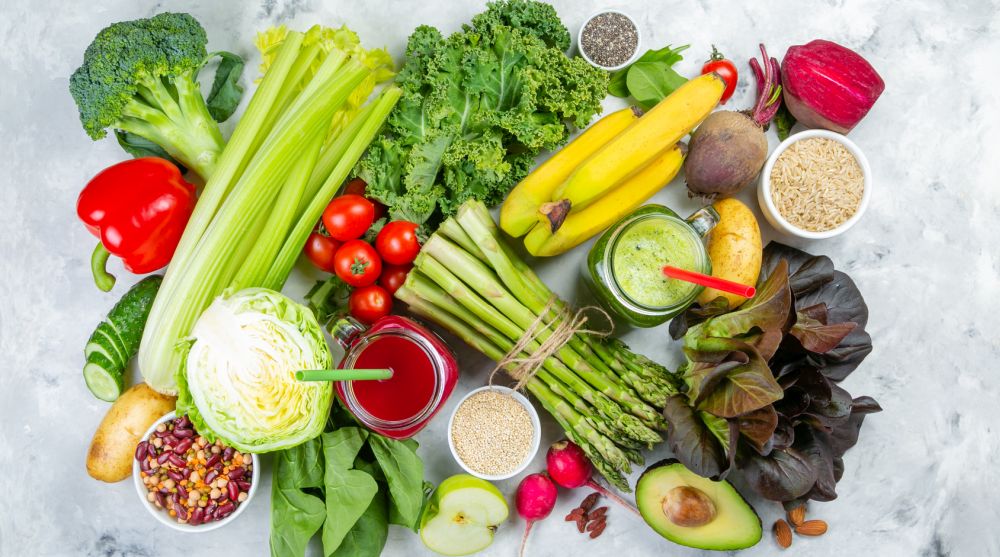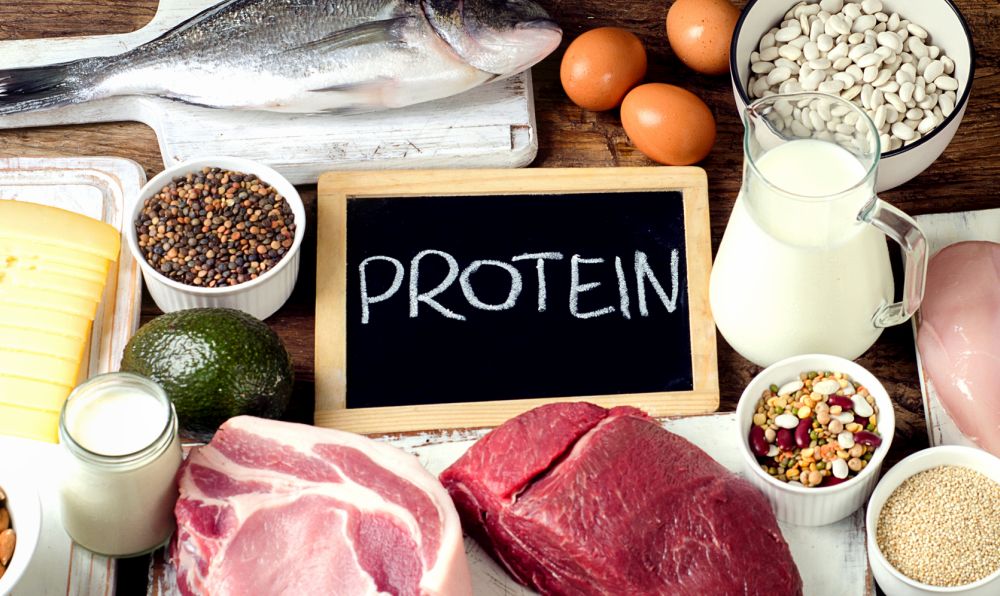The saying “You are what you eat” takes on a full meaning in bodybuilding. You can “kill yourself” from working out in the gym, but one thing is certain, and that is that if you don’t eat enough and properly, your progress will be negligible.
Nutrition in bodybuilding is reduced to the manipulation of proteins , carbohydrates and fats. Here we will focus on nutrition for gaining muscle mass. In order to gain mass, you must consume 1.5 – 2 g of protein per 1 kg of your body weight per day, divided into 5-6 smaller meals during the day.
You will consume between 4 and 6 g/1 kg of carbohydrates, depending on your metabolism . People who struggle to gain mass should stick to the above figure. Fats should be kept to a minimum and consumed only as a side ingredient of protein food.

Your total daily caloric intake can range between 40 and 50 kcal/kg. If you weigh 70 kg, you will consume 2,800 calories per day according to the lower limit. Divide these calories as follows: 25% protein, 55% carbohydrates and 20% fat. That way, you will consume 175g of protein (1g of protein and 1g of carbohydrates have 4kcal each), 385g of carbohydrates and 62g of fat (1g of fat = 9kcal).
The intake of sufficient amounts of protein will be greatly facilitated by taking protein drinks , without additional burden on the digestive tract. Thus, you can use protein drinks between meals. The most important time for proteins is up to 30 minutes after training, after waking up and before going to sleep. A meal after training is mandatory, because the body is then ready to make maximum use of all the benefits of a well-balanced meal, which should contain 30 – 40g of whey protein and between 60 and 80g of carbohydrates (dextrose), and for real results another 5 – 10g of creatine and 5 – 10g glutamine .
If you want to lose weight, reduce your carbohydrate intake, but increase your protein intake to preserve muscle mass. When carbohydrate intake is reduced, the body begins to use another source of energy – fat . If you are working on definition, follow the program until you lose excess weight and no longer than 6 to 8 weeks, because otherwise your metabolism will slow down in order to preserve fat deposits.
It is also useful to apply “cheat” days, for example, 3 days of low carbohydrate intake, 4th day of normal carbohydrate intake, which prevents the even more effect , i.e. a sudden weight gain after a diet.

Sample menu for 7 days
Woman: 27 years old, 170 cm, 60 kg.
Goal: Maintain the existing muscle mass and remove excess fat tissue
First day:
- Breakfast – 4 eggs (egg whites) and 1 yolk (scrambled eggs, omelette, hard-boiled, soft-boiled) + 80 g of black bread (sovital) + 1 tablet of vitamin C-500
- Snack – 30 g of whey protein with 300 ml of water (protein concentrate)
- Lunch – 150 g of meat (turkey, chicken, veal) + 120 g of rice + green salad (olive oil). After lunch ABC+ multivitamin
- Snack – fruit (apple, orange)
- After training – 30 g of whey protein with 300 ml of water or milk 0.9% mm
- Dinner – yogurt 0.1% mm. 0.5 l (ordinary, fruity)
Second day:
- Breakfast – 100 g of cereal + 300 ml of milk or yogurt + vitamin C-500
- Snack – 100 g of fresh cottage cheese
- Lunch – 150 g of fish (hake, tuna) + 200 g of potatoes on a salad (olive oil). After lunch ABC+ multivitamin (1 tablet)
- Snack – fruit yogurt 0.1% mm. 0.5 l
- After training – 40 g of whey protein with 300 ml of light milk
- Dinner – apple or fruit juice

Third day:
- Breakfast – black bread 100 g (toasted) + turkey breast 200 g + margarine fit + vit. C-500
- Snack – fruit shake (300 ml milk 1% + 1 banana)
- Lunch – chicken soup + 150 g of turkey meat + mixed salad + ABC+
- Snack – 100 g of pasta with 120 g of tuna
- Dinner – 40 g of whey protein with 300 ml of water or 0.5 l of yogurt
Fourth day:
- Breakfast – cereals (muesli) 100 g with 300 ml of milk 1% mm. + vit. C-500
- Snack – 0.5 l. yogurt (fruit or plain with 0.1% mm.)
- Lunch – 120 g of veal from the soup + 150 g of boiled vegetables from the soup (potatoes, carrots) + ABC+
- Snack – mixed salad with 120 g of tuna in water
- After training – 40 g of whey protein + 300 ml of water
Box and:
- Breakfast – 4 eggs (whites) and 1 yolk (omelette with cheese) + cheese as desired + vit. C-500
- Snack – Fruit salad of various fruits 200 g
- Lunch – 150 g breaded hake + 150 g chard with potatoes (boiled) with olive oil + ABC+ multivitamin
- Snack – 120 g of rice in milk 1% mm.
- After training – 40 g of whey protein with 300 ml of water
- Dinner – yogurt light 0.1% mm. 0.5 l

Sixth day:
- Breakfast – 100 g of cereal with 300 ml of yogurt 0.1% mm. + vit. C-500
- Snack – semolina in milk 1% mm.
- Lunch – boiled beans (potatoes, corn, carrots) 200 gr. + ABC+ multiv.
- Snack – 120 g of tuna in water
- Dinner – 40 g of whey protein with 300 ml of water
Sedmi and:
- Breakfast – 120 g of fresh cottage cheese + 40 g of black bread + 200 ml of yogurt 0.1% mm. + vit. C-500
- Snack – mixed salad with boiled chicken 150 g
- Lunch – soup with pasta + 140 g of veal + mashed potatoes + ABC+
- Snack – fruit of your choice (apple, banana, orange, kiwi…)
- Dinner – 40 g of whey protein with 300 ml of milk 1% mm.
Instead of protein concentrate, take half a liter of yogurt with 0.1% fat, or eat 200 grams of cottage cheese . Along with vitamin C-500, you can also take zinc (25 mg)
The ratio of carbohydrate-protein-fat intake should be around 55:25:20%, so in your case it looks like this: 60 kg.
- Carbohydrates: 6 g per kg of body weight (approx. 360 g)
- Proteins: 2 g per kg of body weight (120 g)
- Fats: 1 g per kg of body weight (60 g)

